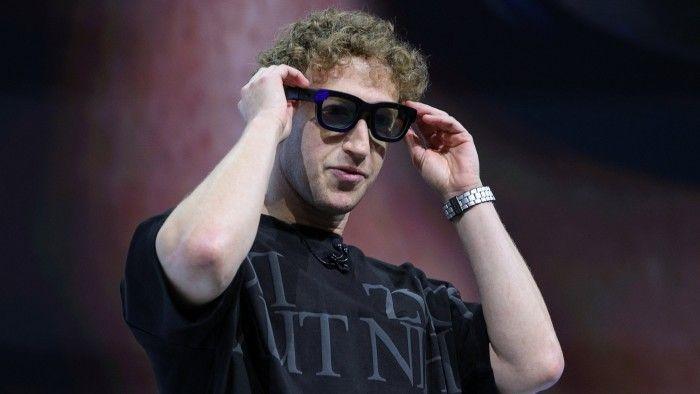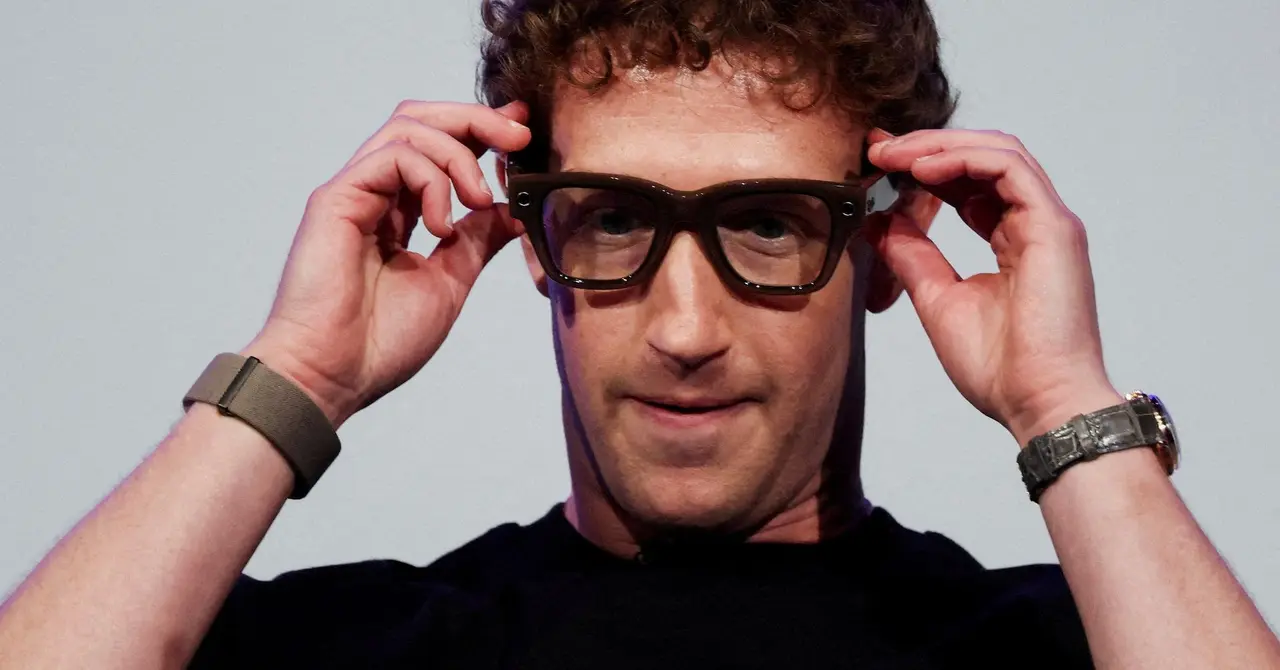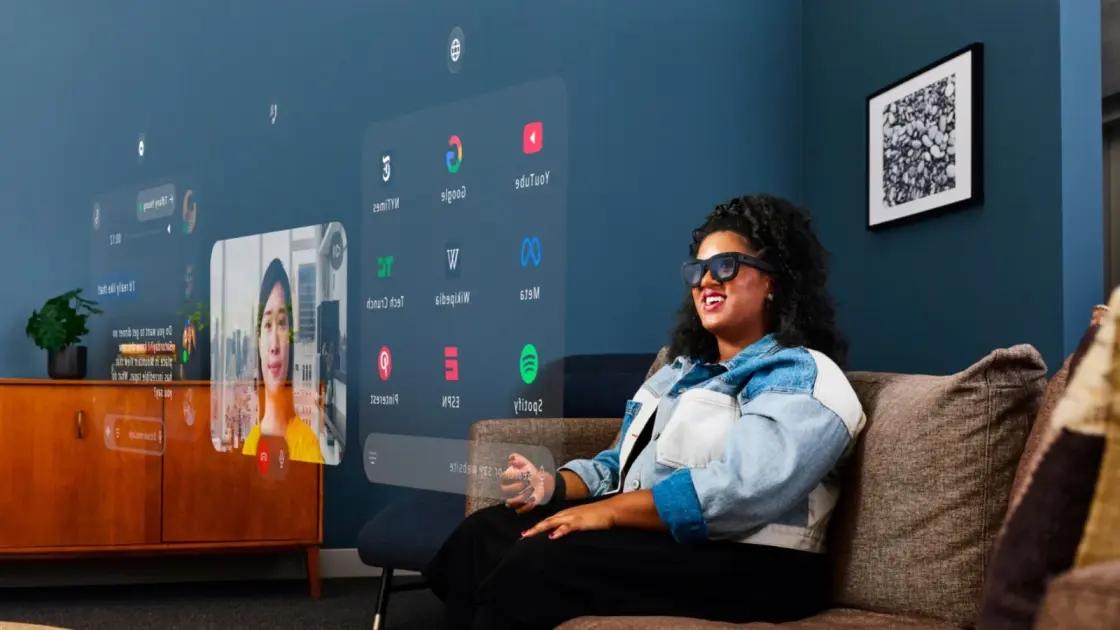Meta's AI Smart Glasses Face Supply Chain Challenges Amid US-China Tensions
2 Sources
2 Sources
[1]
Meta's struggles to decouple from Chinese supplier of AI smart glasses
A leading Chinese hardware maker is taking a stronger grip of the supply chain around Meta's artificial intelligence-powered spectacles, despite the US tech giant seeking to align with the Trump administration's anti-Beijing stance. Shandong-based Goertek has increased its stranglehold over the smart glasses industry, and the social media platform's own extended supply chain, through a spate of dealmaking. It was also manufacturing the forthcoming iteration of Meta's smart glasses, dubbed "Hypernova", according to people familiar with the matter, which are expected to be unveiled this week. The Chinese hardware supplier's dealmaking includes taking control of Shanghai OmniLight, which makes micro-nano optical devices used in smart glasses, and helping to finance a takeover of Plessey, a UK-based optics supplier to Meta. Those moves come as Meta has attempted to diversify its hardware supply chain outside of China. This year, the US company started some production of its Quest virtual reality headsets in Vietnam, according to people familiar with the matter. But Goertek remains one of its main hardware partners in Vietnam, one person said. "Goertek is very aggressive. Early on, they spotted the opportunity presented by the metaverse," said someone familiar with the situation. "Meta has no choice but to work with them because they are the most stable and reliable supplier for key components." The continued reliance on Goertek for its next-generation wearable devices stands in marked contrast to Meta chief Mark Zuckerberg's hawkish turn on China. The Facebook platform was banned in China in 2008, but Zuckerberg continued to lobby to expand its services in the country. Those efforts failed, allowing Chinese rivals to take control of the market. By this year, Zuckerberg had told President Donald Trump of the importance of the US dominating on AI against China, according to people familiar with these discussions. Goertek's strategies have previously caused concern at Meta. In 2022, Facebook's parent company found that the Chinese group had started selling a cheaper version of its VR glasses model on local ecommerce platforms that were similar to the Quest, according to people familiar with the matter. Meta executives debated launching a lawsuit against its Chinese supplier, but ultimately decided against pursuing a case, the people said. Goertek manufactures Meta's virtual reality Quest headsets and its popular Ray-Ban smart glasses, while providing some components to the company. Meta also sources components from other suppliers from countries such as Japan and the US. It said: "We have a robust, diversified supply chain so we're not solely dependent on any one manufacturer, and we're constantly reviewing and exploring supply chain opportunities around the world." Goertek did not respond to a request for comment. Meta bought virtual reality headset maker Oculus in 2014, renaming the headset to Quest when it announced its multibillion-dollar plan in 2021 to build an avatar-filled "metaverse", which it said would be accessed by wearable devices. More recently, Zuckerberg has pivoted to becoming an "AI leader", which has included racing to develop more lightweight wearable devices that are powered by its AI models. Meta is also collaborating with the US government on efforts to modernise its military technology. Andrew Bosworth, Meta's chief technology officer, was this June commissioned as a reserve lieutenant colonel with the Department of Defense, advising on the use of AI for military purposes. Meta also recently announced a partnership with defence tech group Anduril around designing VR and AR headsets for use by the US army. The Ray-Ban Meta glasses, which Meta sells in partnership with eyewear group EssilorLuxottica and feature inbuilt speakers and cameras, became a surprise hit among consumers after their launch in September 2023, selling 2mn pairs by February 2025. Meta's Hypernova smart glasses would for the first time have a small display on one of the lenses, according to two people familiar with the matter and first reported by Bloomberg, overlaying notifications or responses from Meta's AI assistant on to the real world.
[2]
Meta Seeks New Supply Chain Opportunities for AI Smart Glasses | PYMNTS.com
By completing this form, you agree to receive marketing communications from PYMNTS and to the sharing of your information with our sponsor, if applicable, in accordance with our Privacy Policy and Terms and Conditions. Goertek has taken control of optical device manufacturer Shanghai OmniLight and helped finance a takeover of optics supplier Plessey, the Financial Times (FT) reported Tuesday (Sept. 16). The company is also manufacturing Meta's latest smart glasses, Hypernova, which are expected to be announced this week, because it is the most reliable supplier of some key components, according to the report. Goertek made these moves at a time when Meta is trying to diversify its supply chain and when Meta CEO Mark Zuckerberg has told President Donald Trump that the United States must win the AI race against China, according to the report. "We have a robust, diversified supply chain, so we're not solely dependent on any one manufacturer, and we're constantly reviewing and exploring supply chain opportunities around the world," Meta said, per the report. Goertek did not comment in the FT report and did not immediately reply to PYMNTS' request for comment. It was reported Aug. 25 that Meta plans to introduce its new Hypernova smart glasses at its Connect conference, which begins Wednesday (Sept. 17). The smart glasses will feature a small display in the right lens and will be paired with a wristband that lets users control the glasses via hand gestures, CNBC reported. Other reports said the smart glasses will be priced at $800 instead of the initial target of $1,000, their screen on the lens will be used for apps and alerts, and they will be designed to be used with a mobile phone, although they hint at a future when glasses could supplant phones. Meta's partner on its current Ray-Ban and Oakley smart glasses, EssilorLuxottica, said in July that the sales of Ray-Ban Meta glasses were up more than 200% in the first half of the year. PYMNTS reported in February that AI is driving a smart glasses boom, with tech giants and smaller competitors betting on these devices to be the next popular connected wearable.
Share
Share
Copy Link
Meta struggles to diversify its supply chain for AI-powered smart glasses, as Chinese manufacturer Goertek strengthens its grip on key components. This situation highlights the complexities of US-China tech relations and Meta's efforts to lead in AI wearables.

Meta's AI Smart Glasses and the China Connection
Meta, the tech giant formerly known as Facebook, is facing a complex situation in its pursuit of AI-powered smart glasses. The company finds itself increasingly reliant on Chinese manufacturer Goertek for key components and production, despite efforts to diversify its supply chain and align with the US government's stance on China
1
.Goertek's Growing Influence
Shandong-based Goertek has significantly strengthened its position in the smart glasses industry through strategic moves:
- Taking control of Shanghai OmniLight, a manufacturer of micro-nano optical devices used in smart glasses
- Helping finance the takeover of Plessey, a UK-based optics supplier to Meta
- Manufacturing Meta's upcoming 'Hypernova' smart glasses
1
2
These actions have solidified Goertek's role as a crucial supplier for Meta's AI wearables, making it challenging for the US company to reduce its dependence on Chinese manufacturing.
Meta's Diversification Efforts
In response to geopolitical pressures and supply chain risks, Meta has been attempting to diversify its hardware production:
- The company started manufacturing some of its Quest virtual reality headsets in Vietnam
- Meta claims to have a 'robust, diversified supply chain' and is exploring opportunities worldwide
1
2
However, Goertek remains a key partner in Vietnam, highlighting the challenges of completely decoupling from Chinese suppliers.
Related Stories
Geopolitical Context and AI Competition
The situation is further complicated by the broader context of US-China relations and the global AI race:
- Meta CEO Mark Zuckerberg has adopted a more hawkish stance on China, emphasizing to President Trump the importance of US dominance in AI
- Meta is collaborating with the US government on military technology, including AI applications
1
The Future of Meta's AI Wearables
Despite these challenges, Meta continues to push forward with its AI-powered wearables:
- The 'Hypernova' smart glasses are expected to feature a small display on one lens, overlaying AI-generated information
- Meta's partnership with EssilorLuxottica for Ray-Ban smart glasses has been successful, with 2 million pairs sold by February 2025
- The company is positioning itself as an 'AI leader' in wearable technology
1
2
As Meta navigates these complex supply chain and geopolitical issues, the success of its AI-powered smart glasses could have significant implications for the future of wearable technology and the global AI landscape.
References
Summarized by
Navi
Related Stories
AI-Powered Smart Glasses: The Next Frontier in Wearable Technology
06 Feb 2025•Technology

Meta eyes doubling Ray-Ban smart glasses output to 20 million units as AI wearables surge
13 Jan 2026•Business and Economy

Meta Invests $3.5 Billion in EssilorLuxottica, Boosting AI-Powered Smart Glasses Push
09 Jul 2025•Technology

Recent Highlights
1
ByteDance's Seedance 2.0 AI video generator triggers copyright infringement battle with Hollywood
Policy and Regulation

2
Demis Hassabis predicts AGI in 5-8 years, sees new golden era transforming medicine and science
Technology

3
Nvidia and Meta forge massive chip deal as computing power demands reshape AI infrastructure
Technology





